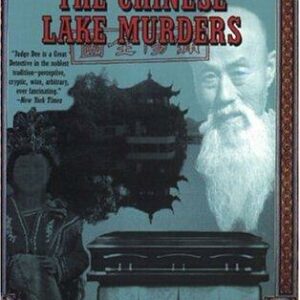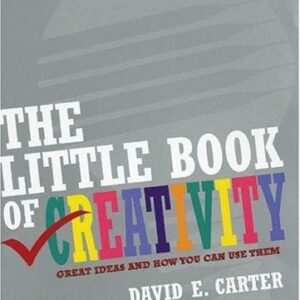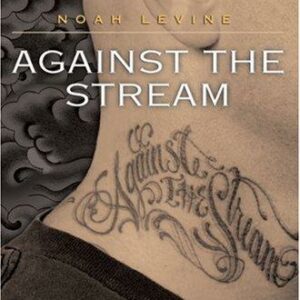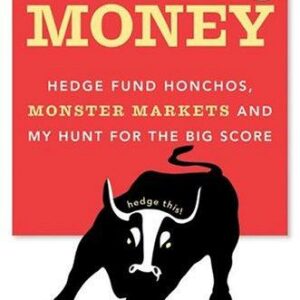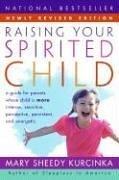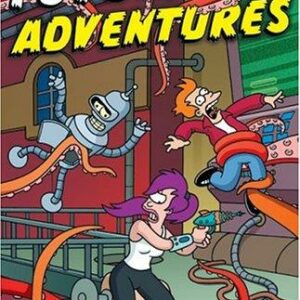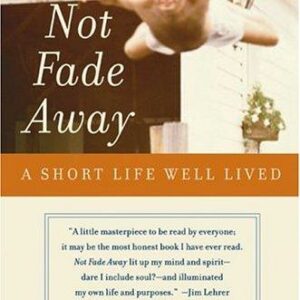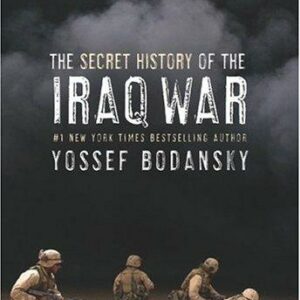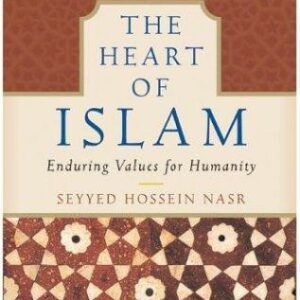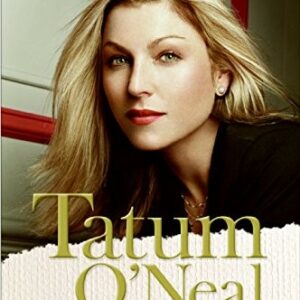Soul Survivor
$18.00
| Title | Range | Discount |
|---|---|---|
| Trade Discount | 5 + | 25% |
- Description
- Additional information
Description
One of America’s leading Christian thinkers interweaves the story of his own struggle to reclaim his beliefs with inspiring portraits of people who have succeeded in the pursuit of an authentic faith.
In Soul Survivor, Philip Yancey charts his spiritual pilgrimage through the influence of key individuals: “These are the people who ushered me into the Kingdom. In many ways, they are why I remain a Christian today, and I want to introduce them to other spiritual seekers.”
Yancey interweaves his own journey with fascinating stories of those who modeled for him a life-enhancing rather than a life-constricting faith: Dr. Paul Brand, G. K. Chesterton, Annie Dillard, Frederick Buechner, C. Everett Koop, Leo Tolstoy, Fyodor Dostoevsky, Henri Nouwen, John Donne, Mahatma Gandi, Shusaku Endo, Martin Luther King, Jr., Robert COles.
Readers will find these inspiring portraits both nurture and challenge for their own understanding of authentic faith. Yancey fans will devour these new glimpses of how he has held onto faith while acknowledging with utter honesty its inherent difficulties. New Yancey readers will be drawn in by the theme of faith versus religion and drawn along a compelling narrative of signposts on a spiritual journey.
Soul Survivor offers illuminating and critically important insights into true Christianity, which will enrich the lives of veteran believers and cautious seekers alike.”It would seem the height of immodesty to praise a book that devotes an entire chapter to praising me. Let me therefore merely recommend it to anyone interested in a relaxed and conversational account of how an assortment of odd fish were variously caught up in and transformed by the Christian Gospel.”
—Frederick Buechner, author of The Sacred Journey, The Hungering Dark and The Eyes of the Heart.
“I love, and am grateful for, every marvelous book Mr. Yancey writes.”
—Anne LamottPhilip Yancey is a journalist and writer who writes a featured column in Christianity Today. The author of more than a dozen books, including Reaching for the Invisible God and What’s So Amazing About Grace?, his last ten books have sold more than 4.5 million copies. He is the recipient of a Christianity Today Book of the Year Award, two ECPA Book of the Year Awards, and eleven Gold Medallions.
1. RECOVERING FROM CHURCH ABUSE
Philip Yancey says he "spent most of [his] life in recovery from the church" (page 1). And he is candid about the racist views he acquired in a society and church that were pervaded by prejudice and legalism. Talk about what, if anything, made you begin to wonder about the truth of things you learned in church. What feelings and emotions have marked your questioning?
Did you at any point experience a contradiction between the church’s teachings and its actions?
What denomination were you raised in? What are your happiest memories of church? The saddest, the most painful?
Yancey talks about people like millionaire Millard Fuller, who abandoned his life of luxury to found an organization to build housesfor people who cannot afford them (page 8). How does such willingness to live one’s faith go against the grain of a secular world? What role does the church play in who you are today?
2. MARTIN LUTHER KING, JR.
Philip Yancey describes growing up in the apartheid conditions of the South in the1950s and 1960s (page 13). Even if we have not grown up in such an obviously racist climate, few of us escape some form of it. What racial assumptions did you grow up with? What made you begin to understand them as something other than "right" or "normal"?
Martin Luther King, Jr., now stands ac cused of personal moral flaws, yet he was a powerful agent for equality and change. How can we reconcile the two sides of his character? Does one side somehow negate or lessen the other?
Can you think of other men and women with seemingly contradictory public and personal behaviors? What makes you forgive or accept such a duality?
Does accepting questionable moral practices in a leader weaken the moral fabric of society?
What is the difference between passivity and nonviolence? Do you see a place for nonviolence in the contemporary world? Why or why not?
3. G. K. CHESTERTON
C. S. Lewis wrote: "A young man who wishes to remain a strong atheist cannot be too careful of his readingÓ (page 44). What does this statement mean to you? Have you been exposed to such transforming reading?
Yancey’s brother reacted to their confining upbringing by embarking on a "grand quest for freedom." His brother’s failures showed Yancey "the destructive power of casting off faith with nothing to take its place" (page 44). Have you been through such a freedom quest? Talk about the relationship of faith and freedom. Why is freedom such a frightening concept for some people?
Nature contains both majestic beauty and unspeakable cruelty. What does Chesterton mean when he said, "Nature is not our mother;
Nature is our sister"? (page 51)
Why do you think we experience pleasure? What role does it play in God’s creation? Why does the church focus so strongly on the dangers of pleasure?
Chesterton weighed three hundred to four hundred pounds (page 56), showing one example of how a sensual pleasure such as eating may ultimately be destructive. How can we savor pleasure and avoid destructive excesses?
Chesterton propounded faith with great wit. How would Christians of today benefit from Chesterton’s sense of humor?
4. DR. PAUL BRAND
From Paul Brand, Philip Yancey learned, "It is indeed possible to live in modern society, achieve success without forfeiting humility, serve others sacrificially, and yet emerge with joy and contentment" (page 67). Do you believe this kind of life is attainable and desirable? What makes a person who could have fame, wealth, and prestige choose a life of anonymity and scarcity? Can you think of such models? Is this model inspiring or intimidating?
Yancey acknowledges that the problem of pain has been a theme in his work. How would you define this problem? How can we reconcile the idea of a loving God with the existence of pain in the world? Can you think of reasons to be grateful for pain? How can we view pain as a gift?
Do you believe God is trustworthy? Why? Why not?
Paul Brand learned from his parents "that love can only be applied person-to-person" (page 75). Why does it often seem easier to care about groups than individuals?
What did Jesus mean when he said, "Happy are they who bear their share of the world’s pain: In the long run they will know more happiness than those who avoid it"? (pages 85-86)
5. DR. ROBERT COLES
"Vicariousness is, after all, a writer’s business,"Yancey writes (page 89). How does a reader know when to trust the vicarious experience a writer presents?
Six-year-old Ruby Bridges was escorted daily through an angry mob, "attending a vacant school to sit alone all day in her classroom" (page 97). Imagine yourself in her place. In her parents’ place. What gives a person the strength to endure such an ordeal? What would you say to a parent who allowed a child to endure an experience like this? Have you ever had to act courageously for a cause?
Robert Coles believed that, for the poor, religion "was no crutch but rather a source of inspiration" (page 102). Karl Marx said, "Religion is the opiate of the masses." What makes one view more convincing to you than the other?
What do we learn from Jesus’ parable of the prodigal son in which the father loves the errant and the dutiful son equally? How would you advise a parent in a similar situation, with one "good" child and one "bad" child? Where does the concept of "tough love" fall in such a scenario?
Do you think wealth makes people less compassionate? What do we gain/lose by our relative affluence?
6. LEO TOLSTOY AND FEODOR DOSTOEVSKY
Through Tolstoy and Dostoevsky, Yancey developed an "understanding of the tension between Christian ideals and reality" (page 121). Can you identify beliefs and behaviors that create this gap? What figures, if any, have helped you come to terms with life as Christians say it should be lived and life as it is lived?
Tolstoy’s desire to live his faith caused his family pain and suffering. Talk about the dangers and virtues in having ideals you cannot live up to.
What does it take to say "attack me rather than the path I follow"? (pages 131?132) How can you separate one from the other?
Dostoevsky lived through a mock execution that changed his life. Talk about near-death experiences or national catastrophes or any traumatic event that may have changed you somehow.
Through Dostoevsky, Yancey came "to understand grace, not as a theological concept but a living reality worked out in a world of ungrace" (page 139). What do "grace" and "ungrace" mean to you?
At the beginning and end of this chapter, Yancey poses a basic question about faith: "Why doesn’t it work?"How would you answer or refute him?
7. MAHATMA GANDHI
Gandhi said that a leader "is only a reflection of the people he leads" (page 157). Think about leaders in your life, not only national and state leaders, but the leaders in your community. What do they reflect about society?
In a world that is global and materialistic, how can one person make a difference? What prevents most of us from exerting the power
of a Gandhi?
How would the United States respond if a national figure announced he/she was going on a fast to promote a cause? Say, if a leading senator pledged to fast to death unless Congress enacted campaign finance reform? If Laura Bush pledged to fast to death until all children were assured of an adequate education?
How would your life change if you renounced material possessions or radically simplified your life? How does the need for possessions
shape us as individuals and as a society?
What makes a person a saint? What happens when a saint appears in our midst?
What are the similarities between Martin Luther King, Jr., and Mahatma Gandhi? The differences? Is one more appealing to you than the other? Why?
8. DR. C. EVERETT KOOP
Ronald Reagan appointed Koop surgeon general on the basis of his strong antiabortion position. Yet Koop became the center of controversy when he announced that "the scientific studies do not provide conclusive data about the health effects of abortion on women" (page 193). How can this statement be reconciled with his long-standing and continued opposition to abortion? How do you respond when apparent facts do not support your beliefs or your church’s teachings?
Conservatives often call for less government control of things like the environment and business, but advocate government control in areas like abortion and sexuality. Liberals call for more government control of the environment and business, but less in areas like abortion and sexuality. What role can faith play in reconciling these apparent polar opposites? How do you normally react to people who have strong feelings about positions different from yours?
Koop had to learn to distinguish the immoral from the illegal (page199). How does a person of faith accomplish this?
How is it possible to hate the sin and love the sinner? Is sin an outdated concept?
9. JOHN DONNE
When he thought he was dying, John Donne struggled with the meaning of suffering in Devotions. Why do you think God lets us suffer? What can we learn from God’s becoming human and enduring the pain and humiliation of the Crucifixion?
Even if you believe the Incarnation is a myth, why has this story retained such a powerful hold on human imagination for two millennia?
Why do we take health for granted and look for meaning in suffering?
Many of us grew up with very specific notions of life after death. Do you have a vision of an afterlife? What is heaven like? Hell? How has your view evolved since childhood?
10. ANNIE DILLARD
Philip Yancey was raised in a strict, fundamentalist milieu, Annie Dillard in a more laid-back social one. Yet both have made a lifelong journey of spiritual inquiry. How does childhood experience shape adult faith?
Talk about your experience of nature. What have you learned from it?
What books have guided you on your faith journey? What do "secular" books offer that overtly "religious" books do not? And, vice versa, what do religious books offer that secular ones do not?
Annie Dillard enjoys some aspects of conservative Christian worship. What kind of religious services are you drawn to? What makes you uncomfortable? What can you learn from experiencing either sort?
11. FREDERICK BUECHNER
Buechner rejected rational explanations of a conversion experience, viewing it instead as "an exemplar of the ‘crazy, holy grace’ that wells up from time to time" (page 250). What is your understanding of a conversion experience?
Buecher believed "that God is alive and present in the world" (page 252). How do you perceive God interacting with history? What is the point of searching for God in history?
A number of people Yancey writes about in this book, including himself, made deliberate attempts to simplify their lives. What are the challenges inherent in such a decision? What are the gains? The losses?
At a critical juncture–the death of a loved one, the loss of a job, a debilitating illness–a friend expresses trust in God. What is your response?
12. SHUSAKU KUENDO
What do you remember of your fears during the Cold War? If you are too young to remember, how do you respond to stories about fear of the atomic bomb, the Cuban missile crisis, the Communists’ torture of their enemies? What are we afraid of today? What do our fears tell us about the world we live in?
Endo was drawn to the stories of the Japanese Christian martyrs (page 276). How have stories of martyrdom affected you? How has your response changed over time?
What makes a person an "outsider"? How do we identify people who "are not one of us"? How do we treat them?
Yancey suggests that Christianity’s emphasis on father love prevented the Japanese from embracing it as eagerly as many other Western phenomena. Some contemporary theologians oppose language that attributes gender to God. How has your understanding of God’s gender–male or female–informed your understanding of the divine?
Why do "writers of faith have a tendency to sanitize their characters" (page 291) when so many great characters in the Bible are deeply flawed?
13. HENRI NOUWEN
What do you think of a man like Nouwen who abandoned a life of celebrity and acclaim to take responsibility for the care of a profoundly disabled man?
Where many would see downward mobility, Nouwen saw "inward mobility" (page 311). How can abandoning a public life of teaching in favor of a much more private life in a small community be seen as embracing God’s gifts rather than abandoning them?
Nouwen never publicly acknowledged his homosexuality. Most Christian churches are divided over issues around gay ordination and gay marriage. Should members of the clergy openly acknowledge their homosexuality? How would the members of your church react to a gay minister? To gay marriage?
Chapter 1
Recovering from Church Abuse
Sometimes in a waiting room or on an airplane I strike up conversations with strangers, during the course of which they learn that I write books on spiritual themes. Eyebrows arch, barriers spring up, and often I hear yet another horror story about church. My seatmates must expect me to defend the church, because they always act surprised when I respond, “Oh, it’s even worse than that. Let me tell you my story.” I have spent most of my life in recovery from the church.
One church I attended during formative years in Georgia of the 1960s presented a hermetically sealed view of the world. A sign out front proudly proclaimed our identity with words radiating from a many-pointed star: “New Testament, Blood-bought, Born-again, Premillennial, Dispensational, fundamental . . .” Our little group of two hundred people had a corner on the truth, God’s truth, and everyone who disagreed with us was surely teetering on the edge of hell. Since my family lived in a mobile home on church property, I could never escape the enveloping cloud that blocked my vision and marked the borders of my world.
Later, I came to realize that the church had mixed in lies with truth. For example, the pastor preached blatant racism from the pulpit. Dark races are cursed by God, he said, citing an obscure passage in Genesis. They function well as servants–“Just look at how colored waiters in restaurants can weave among the tables, swiveling their hips, carrying trays”–but never as leaders. Armed with such doctrines, I reported for my very first job, a summer internship at the prestigious Communicable Disease Center near Atlanta, and met my supervisor, Dr. James Cherry, a Ph.D. in biochemistry and a black man. Something did not add up.
After high school I attended a Bible college in a neighboring state. More progressive than my home church, the school had admitted one black student, whom, to stay on the safe side, they assigned to a roommate from Puerto Rico. This school believed in rules, many rules, sixty-six pages’ worth in fact, which we students had to study and agree to abide by. The faculty and staff took pains to trace each one of these rules to a biblical principle, which involved a degree of creativity since some of the rules (such as those legislating length of hair on men and skirts on women) changed from year to year. As a college senior, engaged, I could spend only the dinner hour, 5:40 p.m. until 7 p.m., with the woman who is now my wife. Once, we got caught holding hands and were put “on restriction,” forbidden to see each other or speak for two weeks. Outside somewhere in the great world beyond, other students were demonstrating against the war in Vietnam, marching for civil rights on a bridge near Selma, Alabama, and gathering to celebrate love and peace in Woodstock, New York. Meanwhile we were preoccupied, mastering supralapsarianism and measuring skirts and hair.
Shortly after the turn of the millennium, in the spring of 2000, I experienced a fast-motion recapitulation of my life. The first day, I served on a panel at a conference in South Carolina addressing the topic “Faith and Physics.” Though I have no expertise in physics, I got chosen along with a representative from Harvard Divinity School because I write openly about matters of faith. The panel was lopsided on the science end, for it included two Nobel prize-winning physicists and the director of the Fermilab nuclear accelerator near Chicago.
One of the Nobel laureates began by saying he had no use for religion, and in fact thought it harmful and superstitious. “Ten percent of Americans claim to have been abducted by aliens, half are creationists, and half read horoscopes each day,” he said. “Why should it surprise us if a majority believe in God?” Raised Orthodox Jewish, he was now a confirmed atheist.
The other scientists had kinder words for religion but said that they restricted their field of view to what can be observed and verified, which by definition excluded most matters of faith. When my turn came to speak, I acknowledged the mistakes the church had made and thanked them for not burning us Christians at the stake now that the tables had turned. I also thanked them for rigorous honesty about their own nontheistic point of view. I read from Chet Raymo, an astronomer and science writer who has calculated the odds of our universe resulting, as he believes it did, from sheer chance:
If, one second after the Big Bang, the ratio of the density of the universe to its expansion rate had differed from its assumed value by only one part in 1015 (that’s 1 followed by fifteen zeros), the universe would have either quickly collapsed upon itself or ballooned so rapidly that stars and galaxies could not have condensed from the primal matter . . . The coin was flipped into the air 1015 times, and it came down on its edge but once. If all the grains of sand on all the beaches of the Earth were possible universes–that is, universes consistent with the laws of physics as we know them–and only one of those grains of sand were a universe that allowed for the existence of intelligent life, then that one grain of sand is the universe we inhabit.
After the panel two more Nobel laureates, another in physics and one in chemistry, joined the discussion, along with some thoughtful Christians. One of the physicists asked to see the quote by Raymo, whom he knew as a personal friend. He pondered a moment, thinking out loud, “Ten to the fifteenth power, ten to the fifteenth . . . let’s see there are 1022 stars in the universe–yeah, I can buy that. I’ll take those odds.” We then moved on to the critique of religion. Yes, it has done harm, but consider the good it has accomplished as well. The scientific method itself grew out of Judaism and Christianity, which presented the world as a product of a rational Creator and thus comprehensible and subject to verification. So did education, medicine, democracy, charitable work, and justice issues such as the abolition of slavery. The atheistic physicists freely acknowledged that they had no real basis for their ethics, and that many of their colleagues had served Nazi and Communist regimes without a twinge of conscience. We had a fascinating interchange, that rare experience of true dialogue resulting from different perspectives on the universe.
A day later, my wife and I got up early and drove a hundred miles to the thirtieth reunion of our Bible college class. There, we listened to classmates describe the last three decades of their lives. One told of being delivered from arthritis after ten years when she finally dealt with unconfessed sin in her life. Another extolled the advantage of sleeping on magnets. Several were suffering from chronic fatigue syndrome, and others from severe depression. One couple had recently put their teenage daughter in a mental institution. These did not seem to be healthy people, and I felt sadness and compassion as I heard their stories.
Paradoxically, in narrating their lives my classmates kept resurrecting phrases we had learned at Bible college: “God is giving me the victory . . . I can do all things through Christ . . . All things work together for good . . . I’m walking in triumph.” I left that reunion with my head spinning. I kept wondering how the skeptical scientists would have reacted had they sat in on the class reunion. I imagine they would have pointed out a disconnect between the observable lives and the spiritual overlay applied to them.
The very next morning, a Sunday, we arose early again and drove two hundred miles to Atlanta in order to attend the “burial” of the fundamentalist church I grew up in, the one with the many-pointed star. After moving to escape a changing neighborhood, the church found itself once again surrounded by African-Americans, and attendance had dwindled. In a sweet irony, it was now selling its building to an African-American congregation. I slipped into the very last service of that church, which had been advertised as a reunion open to all who had ever attended.
I recognized acquaintances from my past, an unsettling time warp in which I found my teenage friends now paunchy, balding, and middle-aged. The pastor, who had served the same congregation for forty years, emphasized the church motto, “Contending for the faith.” “I have fought the fight,” he said. “I have finished the course.” He seemed smaller than I remembered, his posture less erect, and his flaming red hair had turned white. Several times he thanked the congregation for the Oldsmobile they had given him as a love gift: “Not bad for a poor little pastor,” he kept saying. During the expanded service, a procession of people stood and testified how they had met God through this church. Listening to them, I imagined a procession of those not present, people like my brother, who had turned away from God in large part because of this church. I now viewed its contentious spirit with pity, whereas in adolescence it had pressed life and faith out of me. The church had now lost any power over me; its stinger held no more venom. But I kept reminding myself that I had nearly abandoned the Christian faith in reaction against this church, and I felt deep sympathy for those who had.US
Additional information
| Weight | 10.4 oz |
|---|---|
| Dimensions | 0.7500 × 5.4300 × 8.1800 in |
| Imprint | |
| Format | |
| ISBN-13 | |
| Author | |
| Audience | |
| BISAC | |
| Subjects | BIO019000, Christian books, Historical drama, Christian books for men, autobiography books, inspirational gifts, biographies and memoirs, inspirational books for women, religious books for women, REL012040, martin Scorsese, silence, christian biography, Christian missionaries, Silence and Beauty, Makoto Fujimura, Christian martyrs, faith, christian living, Christian, christianity, devotional, religion, spirituality, biography, Memoir, theology, Japan, portugal, church, biographies, inspirational books, memoirs, autobiographies |


